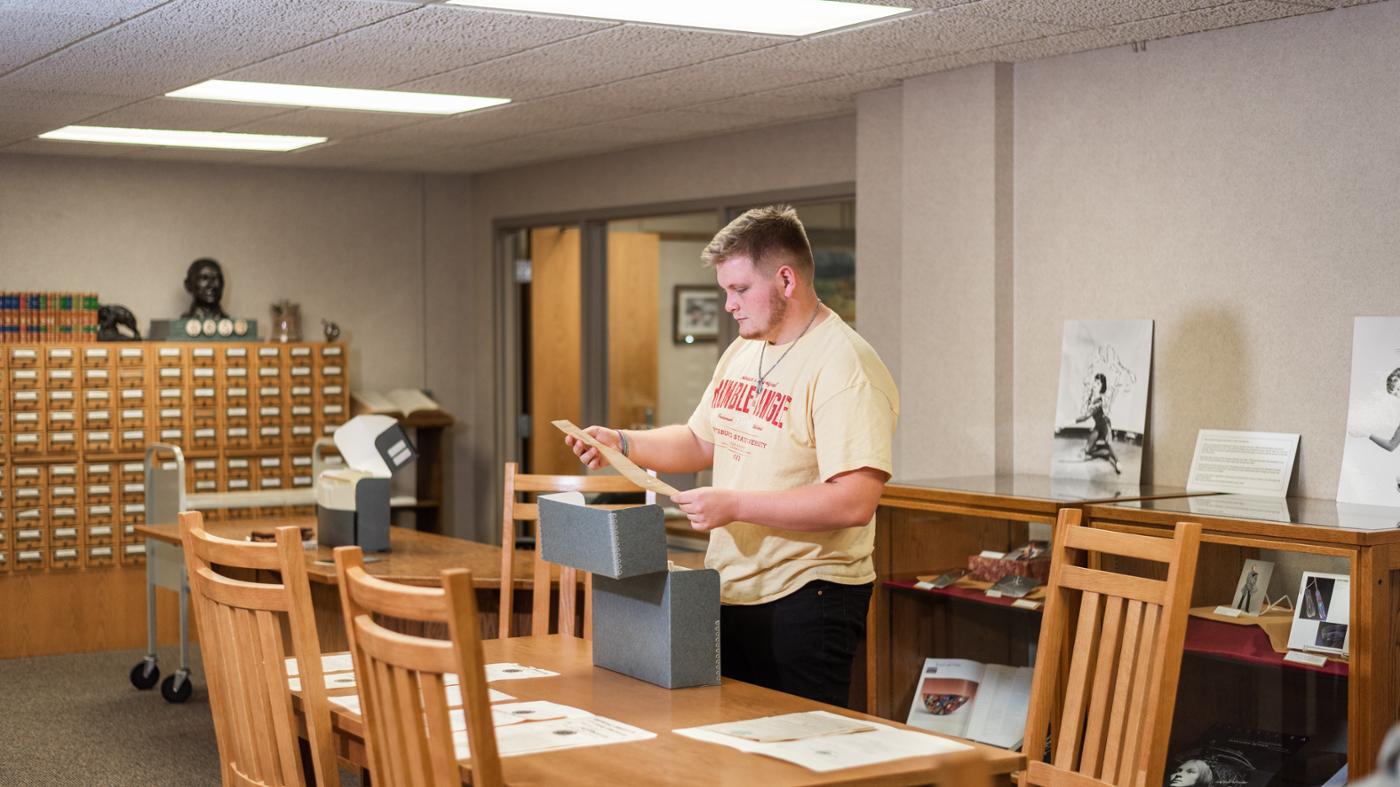History Major
Learn from the past to direct our future. Through the History program at Pittsburg State, gather evidence and present findings. Make events of the past come alive through educational storytelling.Diverse Archive Collection
Our history degree prepares students to examine the exchange of ideas across a variety of media, from academic journals to mainstream news, and from documentaries to public talks.
Flexible Curriculum
The history curriculum is highly flexible, allowing students to align their college track to their interests and career goals. Whether your passion lies in Modern U.S., Modern World, or Early World History, we have comprehensive course offerings.
Study Abroad
Faculty-led study abroad opportunities are paired with history courses to enhance your learning experience. For instance, take a two-week trip to Scotland after completing the course, Modern Britain. See first-hand how imperialism impacted Scottish society. Trips and course pairings vary year to year!
Recognition for Research
History students will complete several research papers in their college career. Earn academic recognition at the Kansas Association of Historians or Missouri Conference of History.
Internship Opportunities
Faculty leverage their national network of historians to help you find work experience. In previous years, students have curated exhibits at the Truman birthplace, reenacted battles at historical sites, and discovered archived letters by Abraham Lincoln.
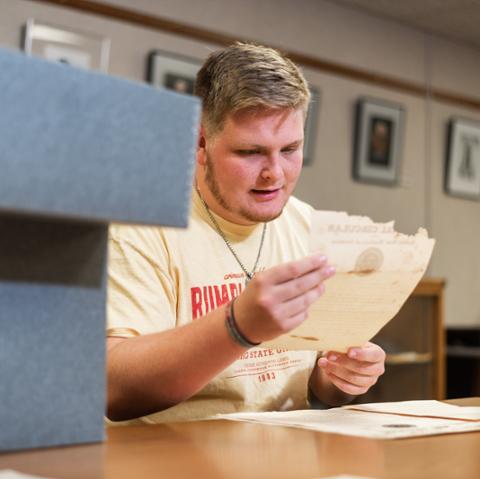
Apply research methodologies to your own family tree! In the course, Your Family in History, utilize tools of genealogy to uncover aspects of your heritage.

Are you interested in the Japanese Samurai? Or the American West? Maybe Pirates? At Pittsburg State, there are history classes to satisfy the interests of all degree-earning students.
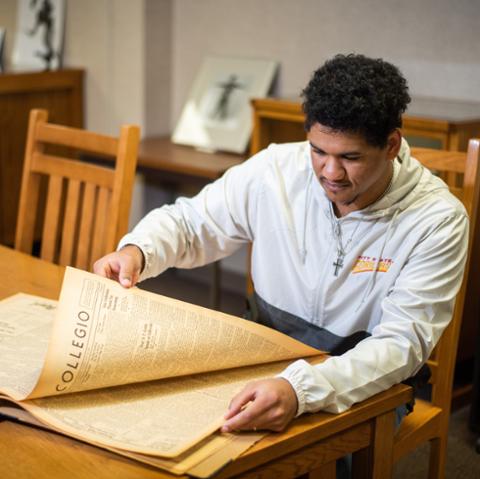
Since 1903, the university has forged proud traditions in academics, athletics, and service to the community. Explore photographs, correspondence, manuscripts, and memorabilia in our Special Collections and Archives.
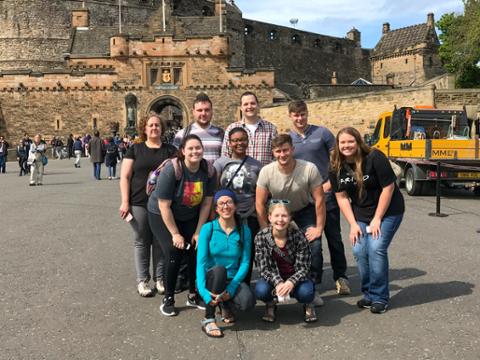
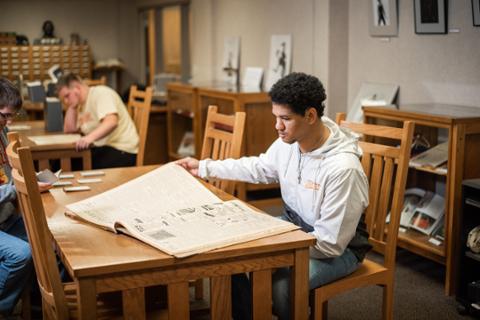
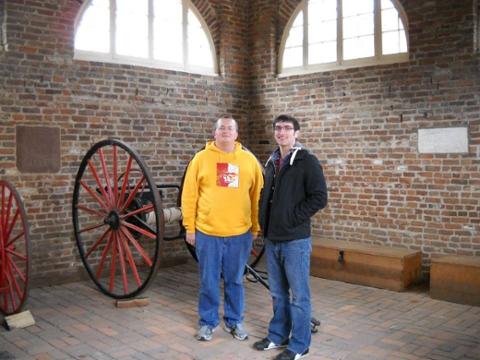
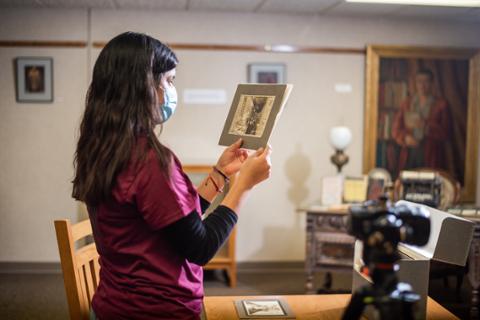
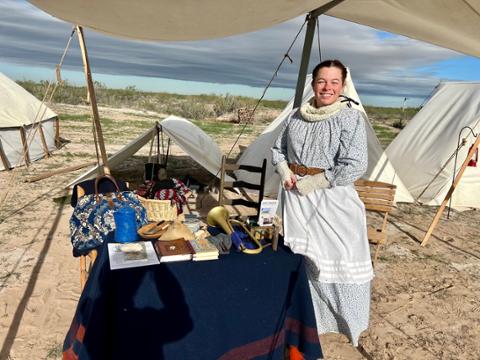
internship placement rate
average student-to-teacher ratio
credit hours of core history courses
credit hours of elective history courses of your choice
History Careers
What can you do with a degree in history?
Students who earn a history degree at Pittsburg State learn about the past, but also gain a richer understanding of human behavior and societal trends. And this knowledge is applicable in a wide array of jobs and industries.
Jobs for history majors:
The research, writing, analytical, and communications skills of a history major apply to many career fields including:
- Development supervisors
- Technical writers/editors
- Contract managers
- FBI agents/police officers/CIA area specialists
- Insurance claims examiners/political campaign managers/speech writers
History teacher:
A history teacher leads students in the study of past events in both the United States and around the world. History teachers facilitate learning by providing stimulating discussions, readings, and projects.
Our history program at Pittsburg State offers a history education emphasis. Pursue this track to become eligible for teaching licensure in the state of Kansas. Graduates obtain their teaching certificate to work in public/private schools.
Historian jobs:
Students interested in a career path as a historian will seek additional, graduate-level education. Possible specialization includes museum studies or public affairs. Master’s recipients serve as:
- Archivists
- Reference specialists
- Curators
Historians are employed in museums, state historical societies, the National Park System, the National Archives, and more.
Historians may explore ways to preserve historic architecture using modern sustainability standards. Common workplaces for preservationists include:
- Architectural firms
- City planning offices
- Economic development agencies
- Historic parks
- Construction companies
Emphases available
Teach social studies, history, government, geography, or economics at the middle and high school levels. Graduates are eligible for state licensure in Kansas.
Additional information
History Degree Map download
Catalog – see catalog for the School of History, Philosophy, and Social Sciences
